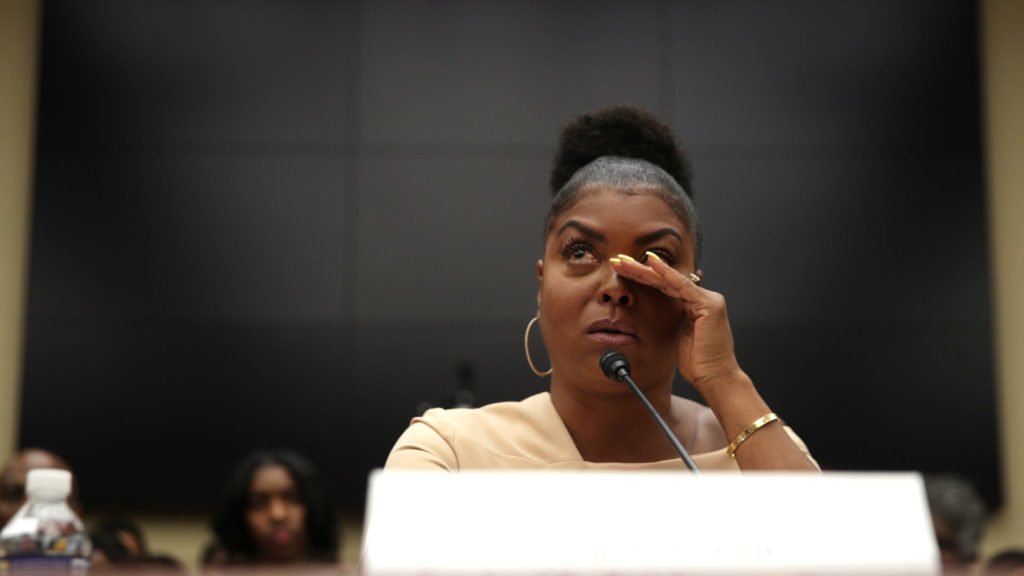American actress, Taraji P. Henson got emotional as she spoke to the American Congress about mental health. She stressed the need for mental health counselors and education, especially in the black community, in the wake of a rise in suicides of young people.
the star, who has an adult son, talked about her battle with depression anxiety, which has been an open topic. She spoke before the Congressional Black Caucus Emergency Taskforce on Black Youth Suicide and Mental Health.’
“I really don’t know how to fix this problem, I just know that the suicide rate is rising.” she said, “I just know that the ages of the children that are committing suicide are getting younger and younger.”
She continued saying “It breaks my heart to know a 5-year-old child are contemplating life and death.” Henson said “I just… I’m sorry. that one is tough for me. So I’m here to appeal to you, because to you because this is a national crisis. When I hear kids going to bathrooms, cutting themselves, you’re supposed to feel safe in school.”
A study published earlier this year by JAMA Pediatrics showed that between 2007 and 2015, annual ER visits relation to suicide by people aged between 5-18 rose from 2.2% to 3.5% and from 580,000 to 1.2 million.

She added “I’m here using my celebrity, using my voice, to put a face to them because I also suffer from depression and anxiety. And if you’re a human living in today’s world I don’t know how you’re not suffering in any way, I mean if you turn on the news, that’s PTSD right there. We need each other. This is me reaching across the table, trying to lend a helping hand in the best way I can.
Taraji is the founder of the Boris Lawrence Henson Foundation, which aims to end the stigma surrounding mental illness in the black community. Named after the actress’ late father, who returned from the Vietnam War with mental health issues.
She also recalled her past experiences as a special education teacher of mostly black male students in the Crenshaw neighborhood in Los Angeles. She talked about how their parents were absent, how one resorted to stealing food so he could eat, and how they appeared unaffected by shootings.
“We can’t give up on our kids and I think that’s where it starts,” she said. “I think we implement mental illness or mental health education in school. It needs to be a subject…we need to talk about it. The more we talk about it, the more people will feel they can talk about it.”

